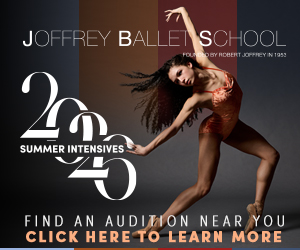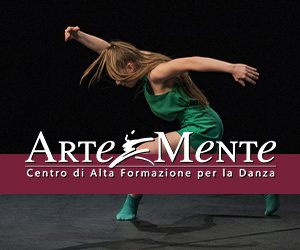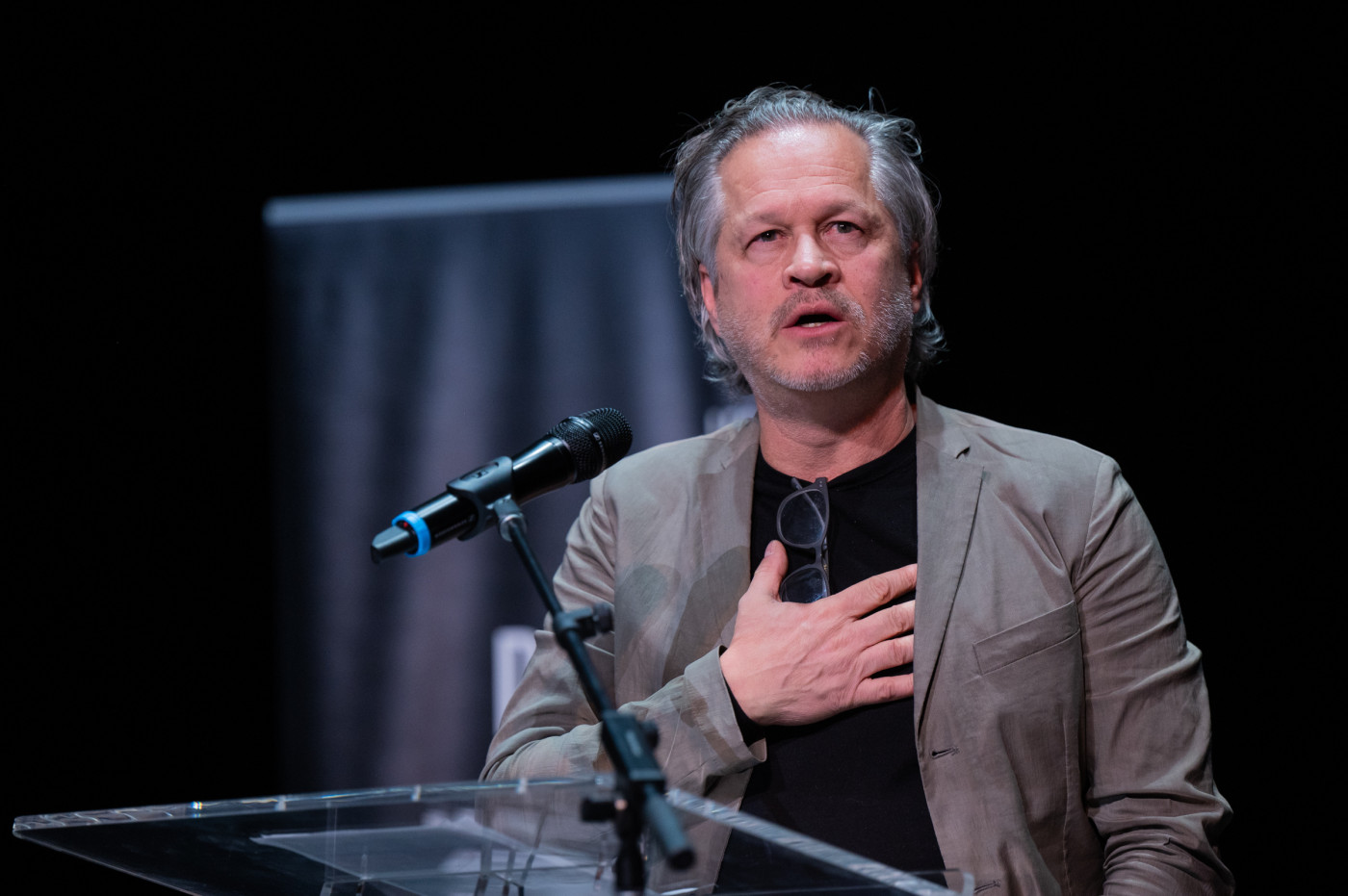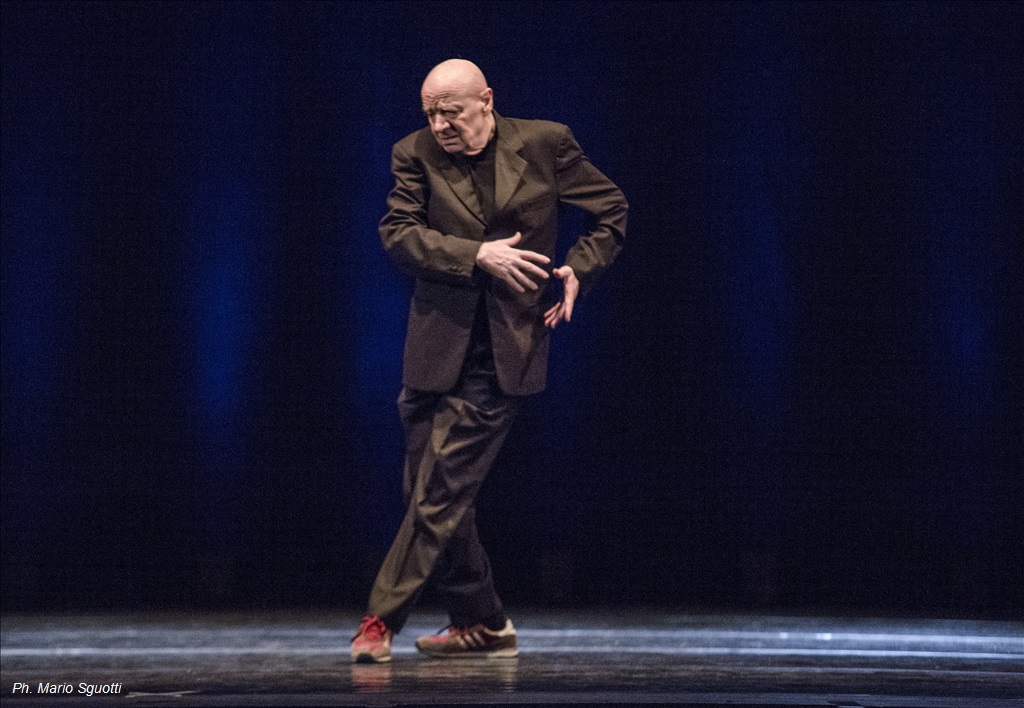Federico Bonelli: "We’re the sum of our experiences”
Italian Principal dancer at the Royal Ballet in London since 2003, he considers himself a product of English style
16/10/2020
He’s elegant, affable and modest. Nothing about him screams celebrity. Nevertheless, this Italian artist, Principal dancer of the Royal Ballet in London, is enjoying an envy-inducing career. He is also level headed with a pragmatic vision of his future and the world of dance. Among other things, he talked to us about how he’s managed the enforced break of recent months, the teachers who have left their mark and social media.
Federico, how did you handle the break in activity due to the Covid-19 lockdown? Are you all back in rehearsals in London? No, not yet. I’ve practically lost count of the months… The company was told to stay home a week before full lockdown came into force in Britain. I’ve been doing dance lessons in the kitchen, just like the others. It’s not easy staying in shape but the theatre has given us a lot of help by scheduling four virtual lessons a week (including Saturdays) with a different guest teacher every week. Attendance wasn’t compulsory because we’ve all been furloughed but lots of dancers are following them, as well as training in the gym and doing yoga and Pilates. In addition, my wife (Hikaru Kobayashi, First Soloist of the Royal Ballet retired in 2018, Ed.) regularly holds barre à terre lessons for the dancers and I also take part in them.
Are you expecting to return to the theatre soon? They’ve told us we can expect to go back from the third week in July with special provisions to guarantee distancing and avoid crowding in the studio. I think no more than one maître, one pianist and eight dancers will be allowed in the room at a time, meaning that the dancers will occupy more rooms at the same time and the lessons will be broadcast over the internet. We won’t be allowed to use dressing rooms, we’ll have a one-way system in place and there will be temperature checks… This phase will last at least four weeks as we get back to peak condition. There won’t be any rehearsals for shows because it would be impossible to avoid physical contact with each other. When will we be back on stage? I doubt it will be before October but we’re waiting for news.
How have you dealt with this period on a psychological level? I’d start by saying that no family members here in London, in Italy or in Japan, became ill. This is something positive. Also, I’m lucky enough to have a house with a garden, which has been a real outlet over this period. I’d say the hardest thing has been staying motivated and managing to find the enthusiasm to do things every day. I organised my days with barre à terre training and lessons three times a week plus a weight-training session. Then, to practise batterie I learnt to skip (laughing). Having to take a break is not something new to me. Last year I attended a full-time master in theatre management that left me time for just one lesson a week with the company, every Saturday. Even though I was practising less I was still able to return to the stage and even managed to dance some of the classics without too much trouble. I know from experience that it’s possible to restart after a break and that’s also thanks to the fantastic physiotherapists and medical staff who take care of us at the Royal Ballet.
You’ve been Principal dancer of the Royal Ballet for seventeen years. Do you consider yourself a product of an English style of dancing? Yes, I feel like I’ve taken on an English style because I’ve had a large part of my professional experience here. After my time with the Zürich Ballet and then as a Principal with the Dutch National Ballet, in 2003 the Royal Ballet became my home. We’re all products of our experiences. However, I think the Royal Ballet has a distinguishing feature when it comes to style; it’s the way in which it tells stories, by searching for naturalness and humanity within the characters. I remember that when I first arrived in London, when I was on the stage, I would stand still in a tendu en arrière pose: over time I learnt that you can stay still with your weight on both feet without the need for en dehors or anything else. I’m not trying to say that technique doesn’t convey stories but it can sometimes be forgotten in order to elevate the human aspect.
Is there one coach who you remember particularly fondly or whose teaching left a mark? At the Royal Ballet the work that goes into telling the story and the characterisation is extremely important. The coaches even help us with this aspect. The relationship with your partner is also extremely important and can make the difference to how the story is told. If I were asked to mention particular coaches and ballet masters I’d certainly say the extraordinary Jonathan Cope: every time I worked with him I became developed further as a dancer and learnt to fully appreciate his generosity. He retired from dancing when I arrived in London so I’ve literally witnessed his evolution/transformation from Principal to coach. He was a real master in roles such as Rudolph and working on Mayerling with him was a truly special experience.
What about special partners? I’ve danced with many extraordinary dancers but I don’t want to name names because I might forget someone. You may love them, adore them or detest them; it depends. Sometimes the scenes you hated doing in the rehearsal room become extraordinarily intense moments together on stage. We’re all human. It’s those rare moments of intensity that make you want to carry on dancing.
Any tales of disastrous experiences? Once, when I was still at school, I dropped a dancer when I was doing a lift. Luckily, I fell backwards and she fell on top of me. Another time, I did the wrong steps on stage, going in the opposite direction. I remember saying to my partner: “The orchestra got it wrong, let’s do it again!”. I’ve even almost got into an argument on stage but miraculously we managed to get to the end of the performance.
You mentioned that you attended a master. Are you considering your future? Are you planning for when you bid farewell to the stage? All dancers should start thinking about what comes afterwards as early as possible. Our careers are too short; they have an expiry date. You have to be prepared for the transition. In recent years I’ve thought about my departure a lot and I decided to attend The Clore Fellowship, an international development and preparation programme for managers in the arts. What plans do I have for the future? I would love to become the director of a dance company. I still have a lot to learn so I’m trying to acquire new skills every day to help me achieve my goal.
Do you have any unfulfilled dreams? A choreographer you’d like to meet or a role you’d like to play? At this moment in time I’d have to say that what I’d like more than anything is to return to the stage – any title or ballet would do. Among today’s choreographers I really like Crystal Pite. She has already been a guest at the Royal Ballet but I wasn’t involved in her creation. One of the last shows I saw before lockdown was Revisor at the Sadler’s Wells. It’d be great to work with her. It doesn’t sound like a completely unachievable dream, does it?
If you had to choose between classical or contemporary which would it be? That’s an impossible choice. I want to do both. And in the third millennium ballet companies have to do both. It’s a question of maintaining the past and looking to the future, and the future will embrace new titles complete with formal technique as well as other styles and freedom of movement. I remember something Pompea Santoro said to me at the Turin Dance Academy when I was about to join the Zürich Ballet, she told me: “You want to be the Prince? Go and be a Prince. When you come back you’ll do other things”. When I was studying I dreamed of classical ballets, as if there was some sort of hierarchy. Now I’m certain there’s no hierarchy and, more importantly, I know it’s stimulating to tackle titles that may not seem your thing at first. Just take the role of Basilio in Don Quixote. It’s certainly not the role best suited to me but dancing it was pure joy, I discovered a part of myself that I didn’t know.
As an Italian artist have you ever felt overlooked? I won’t deny that I’d have liked to dance more in Italy over the years. I’ve appeared in a number of galas but a full production is something else. But I can’t complain. When I look back on the career I’ve had, the opportunities I’ve been presented with… I couldn’t have wished for more. Italy is my home country, I’m very attached to it, but my home is London now. Anyway, it’s never too late…
What does the future hold? All our plans have been cancelled. My wife is responsible for organising events and even the second edition of her gala in Japan- scheduled for January 2021 – has been put on hold for the moment.
We’d like you to share your thoughts on the current state of the dance world. I think the dance world has a real need for diversification, both in terms of the people involved in projects and in terms of the stories told on stage. One of the most incredible things about London is the amount of theatres and theatre productions that tell current stories, attracting a very diverse audience. Dance faces the challenge of widening its audience base. One option could be to change the type of stories that we tell on stage, delving further into events of our time. Take Black Lives Matter: the social media channels were full of black pages in a show of tokenism; something more needs to be done. Not long ago I saw Small Island at the National Theatre, an extraordinary piece about the Windrush scandal that has piqued the interest of the most diverse audience. It’s real food for thought…
Talking of social media, you’re one of the few famous dancers to use it with moderation. Is it a question of privacy? I’m not afraid to say that I don’t particularly like social media. In some ways I’m fascinated by it, I recognise its importance in terms of its universality and power, but I haven’t fully got on board with the whole thing. It’s probably because it doesn’t reflect the complexity of life; it’s reductive; it offers a snapshot and, sometimes, misrepresents. And that’s without getting into the false messages out there. It needs to be used more responsibly by us all.
© All rights reserved







